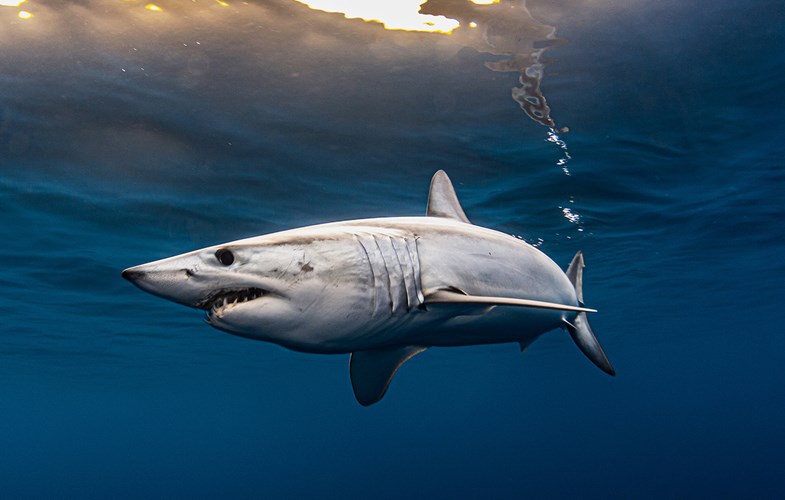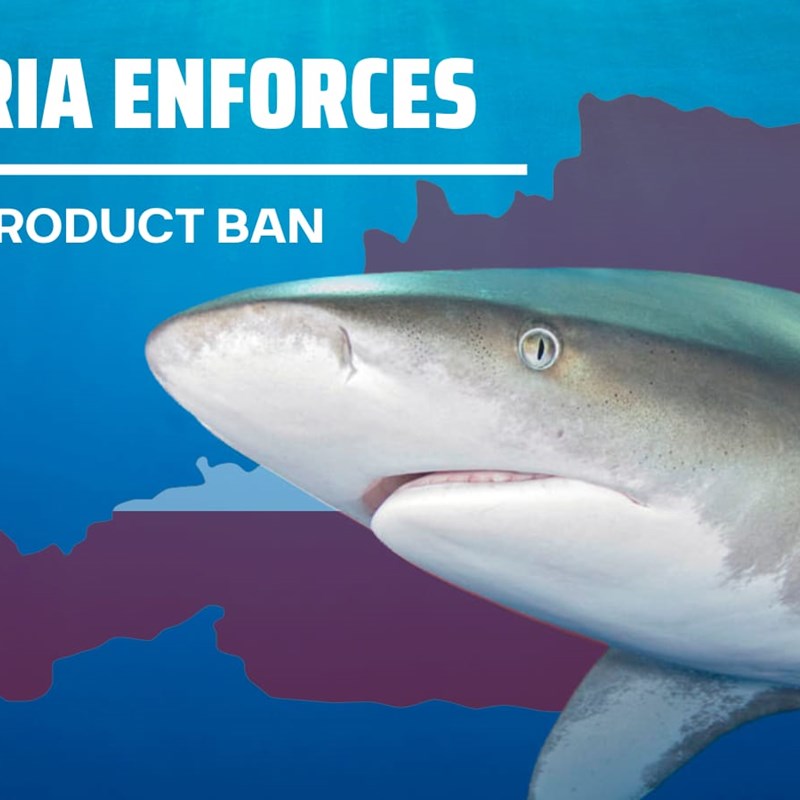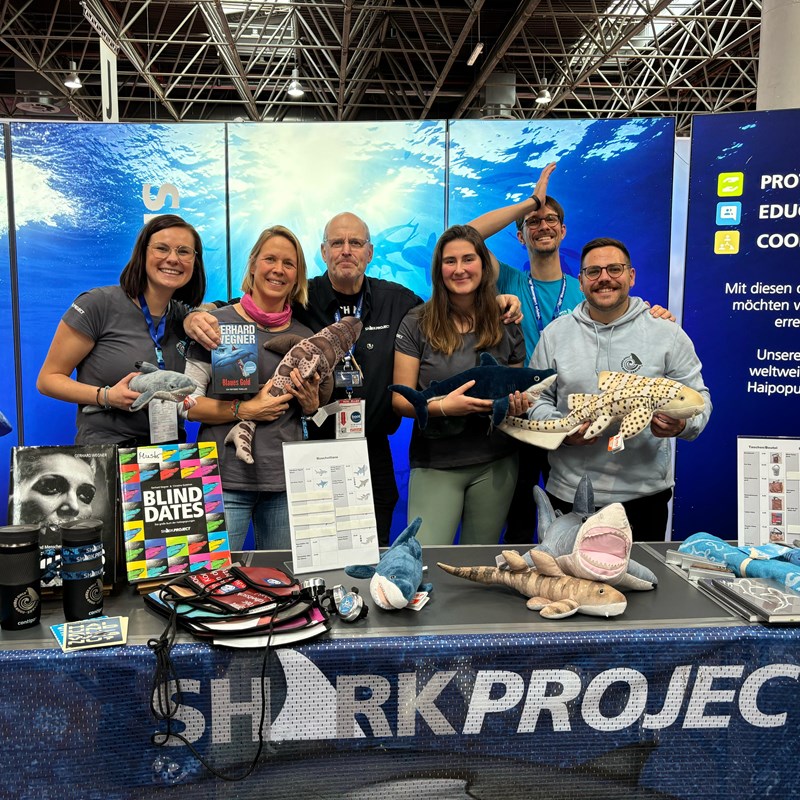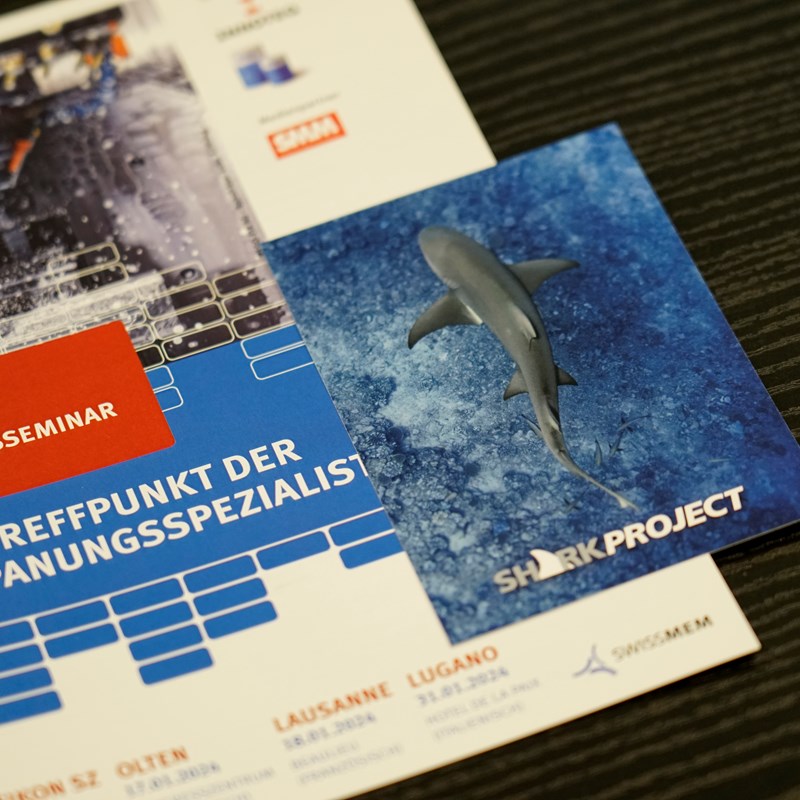

Atlantic Tuna Commission has to act at its November meeting
7. October, 2022
EU stops the trade of mako sharks from the Atlantic
Brussels/Munich/Zurich, October 7, 2022. The EU's species protection authorities decided to prohibit all import and export of mako sharks from the South Atlantic. This extends the already existing ban for the North Atlantic since 2021 now also to the South Atlantic. The species conservation organizations Pro Wildlife and SHARKPROJECT welcome this decision as an important milestone in stopping the massive over-exploitation of this endangered species and preventing the collapse of stocks in the Atlantic. Both organisations now urge the EU to propose effective conservation measures for the ICCAT Commission Meeting in November. ICCAT is the fishery management organisation for the conservation of tuna, tuna-like species, and sharks in the Atlantic and if measures are adopted by this Commission they are binding for all contracting parties, not just the EU member states.
Species conservation and commercial interests clashing
Shortfin mako is one of the biggest pelagic sharks in the Atlantic. As top predators, these sharks have a key role in the marine ecosystem and are vital for the conservation of biodiversity in the ocean. To date, the EU is still the largest catch nation for shortfin mako in the South Atlantic and responsible for the massive decline of this species, which can still be fished without limits. At international meetings the fisheries department of the EU "DG Mare" usually represents the interests of the Spanish and Portuguese fishing fleets, whereas the EU species protection authorities work to protect endangered species from becoming extinct – evidently two completely opposite position.
ICCAT (International Commission for the Conservation of Atlantic Tunas) manages fishing of tuna and sharks, agrees on quotas and allocations for each of the member states and can also adopt fishing and retention bans. "However, as it is the fisheries ministries of the member states, taking the decisions at ICCAT unfortunately very little if anything happens at ICCAT without massive pressure from outside and to date we still have neither an allocation of catch quotas nor harvest control rules in place for sharks," said Dr. Iris Ziegler from SHARKPROJECT. "That's why we're now urging the EU to submit a proposal for the upcoming meeting of ICCAT that takes the failures of the past and the critical status of these stocks in the Atlantic into consideration when proposing effective conservation measures."
Scientific recommendations have been ignored for too long
Since 2017, ICCAT’s Scientific Committee (SCRS) has recommended to ban the retention of mako sharks from the North Atlantic completely to remove all economic incentives from the catch of these animals. For the South Atlantic, the Committee has also recommended since then to limit total fishing-related mortality to a maximum of 2001 metric tons per year. However, these recommendations have been ignored by ICCAT for many years.
In 2019, time global trade restrictions were adopted for all stocks of shortfin mako for the first at the 2019 CITES World Conservation Conference. Since then, countries must credibly demonstrate that the fishing and trading of these animals is not detrimental to the survival of the species. In view of the collapsing stocks and continued overfishing, EU species conservation authorities felt unable to continue approving the import and export of this species as ecologically safe. As a first step they had decided to ban all imports from the North Atlantic by the beginning of 2021.
It was only after this decision and massive pressure from species conservation organizations that the EU Fisheries Department had agreed to a temporary retention ban for shortfin Mako from the North Atlantic at the ICCAT meeting in November 2021, which thereby applies for all contracting parties to ICCAT.
Ahead of the upcoming ICCAT meeting SHARKPROJECT and Pro Wildlife are now calling for a similar push for the South Atlantic. "The EU species protection authorities have taken a decisive step with their current decision for an import ban also from the South. Now ICCAT must follow suit and end the unregulated fishing in the South Atlantic. Only when the overexploitation comes to an end will this endangered shark have a realistic chance of recovering from catastrophic overfishing," concludes Dr. Sandra Altherr of Pro Wildlife.
The EU had decided to ban the import from the South Atlantic already on 13 September, but this has been published only on 6 September.
* CITES: Convention on International Trade in Endangered Species of Wild Fauna and Flora
Media contacts
- Sandra Altherr, Pro Wildlife, Tel. +49 174 217 5054, Sandra.Altherr@prowildlife.de
- Iris Ziegler, Sharkproject, Tel. +49 174 379 5190, i.ziegler@sharkproject.org
Background information:
- SRG Decision: https://speciesplus.net/api/v1/documents/15597 - the scientific name for shortfin mako shark is Isurus oxyrinchus
About Pro Wildlife
Pro Wildlife is a non-profit organisation that works internationally to protect wildlife and its habitats with the aim to preserve biodiversity and to save animals. Thus, the survival of species in their habitat, but also the protection of the individual animal is of key importance. Pro Wildlife advocates for better laws and effective protection measures for wildlife, e.g. at CITES (the Convention on International Trade in Endangered Species of Wild Fauna and Flora), ICCAT (International Commission for the Conservation of Atlantic Tunas) and the IWC (International Whaling Commission). In various countries, the organisation supports aid projects for animals in need, helps to preserve habitats and works to ensure coexistence between people and wildlife.
About SHARKPROJECT
SHARKPROJECT is a species conservation organization dedicated to the protection of sharks and their marine habitat. In addition to education and outreach on marine conservation issues, SHARKPROJECT is committed to a global transformation of the use of our oceans, towards an ecosystem-based fishery management, the reduction of the bycatch of threatened species, and the creation of marine protected areas. All employees work on a voluntary basis and all donations are used to directly support shark conservation projects. Besides the umbrella organization SHARKPROJECT International, there are country organizations in Austria, Germany and Switzerland. SHARKPROJECT is a member of the Deep Sea Conservation Coalition (DSCC), Seas at Risk, the Transform Bottom Trawling Coalition and advocates for a moratorium against deep sea mining and an end of destructive fishing methods


